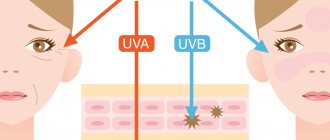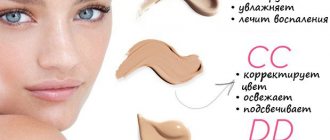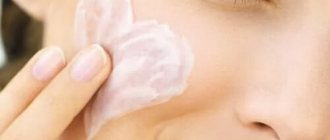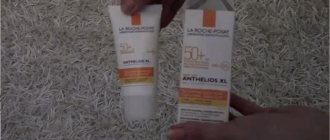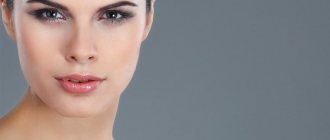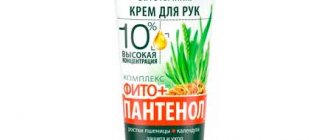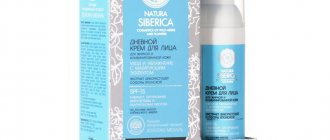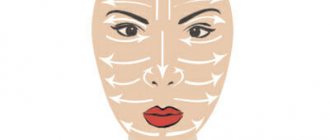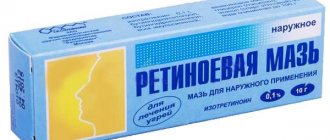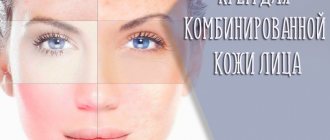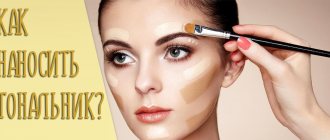What is spf cream
Sun rays are necessary to activate the synthesis of melanin, which colors the skin in a chocolate shade of the skin.
At the same time, aggressive ultraviolet radiation can damage the upper layers of the epidermis, causing the appearance of burns, freckles, pigmentation and malignant tumors.
When tanning, sun protection is necessary using special products with spf.
Creams with spf protect the skin from aggressive ultraviolet radiation, providing a beautiful tan without defects. The higher the spf number, the longer you can be exposed to direct sunlight without harm to your health. For example, creams with spf 100 allow you to tan for two hours.
Can sunscreen be used continuously?
Sunscreens contain much less beneficial ingredients that have a therapeutic effect on the skin. Also, the physical filters included in the composition overload the epidermis. These include zinc oxide and titanium dioxide. It is not recommended to cover the stratum corneum daily with products containing these minerals. They slow down the rate of epidermis renewal, which already decreases with age.
If you frequently use cream with chemical filters, unwanted reactions may occur. Throughout the day, many chemical filters oxidize and change. Chemical filters themselves not only protect the skin from ultraviolet radiation, but can also have an irritating effect.
It is recommended to wear a broad-spectrum sunscreen with an SPF of at least 30 when outdoors for more than two hours at a time. Periodically you should add a portion of the cream to the face, neck, décolleté, arms, and legs.
What are the types of creams with spf?
According to the degree of protection, sunscreens can be divided into several categories:
- SPF 2-5 – basic cream, suitable for dark skin or winter, reflects only 50% of ultraviolet radiation.
- SPF 5-15 – medium level of protection, reflects up to 85% of ultraviolet radiation.
- SPF 20-30 – good UV protection, reflects 97% of rays.
- SPF 40-50 – reflects 99% of ultraviolet rays.
- Cream with spf 100 protection guarantees maximum protection against intense ultraviolet exposure. Suitable for white skin prone to irritation and allergies.
Also interesting Creams with SPF 50 for oily skin - recommendations for use
Compound
Based on their composition, sunscreens can be divided into two groups:
- Creams with chemical components that neutralize the negative effects of ultraviolet rays. The composition may include filters of natural origin, for example, shea and avocado butter, wheat germ extract.
- Creams with physical factors that reflect ultraviolet rays. These are zinc, titanium and potassium. They create an invisible protective film against ultraviolet radiation on the skin.
Types of filters and levels of SPF protection
There are two types of sun filters: physical and chemical. Physical ones form a protective “screen” on the skin that reflects UV rays. They are hypoallergenic, do not cause irritation, but dry out the skin, which causes a feeling of tightness in sensitive and dry skin. When purchasing sunscreen lotion, preference should be given to products based on titanium dioxide and zinc.
Attention! Hyaluronic acid, vitamins and essential oils do not work in SPF products with physical filters, so if necessary, it is better to apply moisturizing and nourishing products under SPF cream.
Chemical filters absorb ultraviolet rays, converting them into thermal energy and neutralizing them. Some ingredients of such products are strong allergens.
ATTENTION! All products with an index of more than 50 undoubtedly contain chemical filters.
Children's protective cosmetics include SPF filters of plant origin, complementing factors with physical or chemical effects.
There are foundations and skin care creams, blushes, powders and bronzers containing SPF components, but their effect is designed for short-term exposure to the sun; they do not provide full protection, so these products are powerless . Products with chemical filters should be applied to cleansed skin, wait for absorption, after which you can apply decorative cosmetics. Sunscreen lotions with physical filters do not require this; the order of application of cosmetics can be arbitrary.
CAREFULLY! It is better to avoid sunscreen containing parabens, powerful preservatives such as methylisothiazolinone, fragrances, oxybenzone, benzophenone, and retinoids.
The number after the letters SPF indicates the level of protection. SPF 15 blocks 93% of radiation, SPF 30 – 97%, SPF 50+ – 98%, SPF 100 – 99%.
How to choose sunscreen
In order to get an even tan without defects, you need to be responsible when choosing a sunscreen, following simple tips:
- If you need cream for a summer holiday, then you need to choose spf from 30 to 100. For dark skin, spf 20-30 will be enough. Sunscreen spf 100 is intended for snow-white and sensitive skin prone to allergies and irritation. Children's cosmetics also have the highest degree of protection.
- For the winter period, a cream with spf from 5 to 15 will be enough. The lighter the skin, the more it needs protection from ultraviolet radiation.
- For the off-season, when there is moderate solar activity, sunscreens with spf 15-20 will be sufficient.
- It is very good when creams, in addition to protective filters, contain vitamins and minerals to maintain the firmness and elasticity of the skin. Such creams will protect the upper layer of the epidermis from premature aging.
- For skin prone to irritation, you need to choose hypoallergenic creams that do not contain aggressive chemical components.
For what skin
To protect your skin from intense sun exposure, you need to choose high-quality sunscreens based on your skin type.
- For adapted dark skin, creams with spf from 20 to 30 are suitable.
- For white skin that tans quickly, sunscreens with an spf of 40 to 50 are suitable.
- Sunscreens with spf 100 are suitable for white skin that is prone to sunburn, pigmentation and allergies.
Also interesting is the Avene line of sunscreens with spf 50
Ultraviolet index
The level of solar radiation at the earth's surface is determined by the UV index (UVI). The higher it is, the higher the risk of danger to the skin. The level of the ultraviolet index ranges from 0 to more than 11. For example, in countries with temperate climatic conditions, the ultraviolet index ranges from 3 to 5.
When going on vacation to warm countries with a high ultraviolet index, you need to choose a high-quality face cream spf 100. This will avoid sunburn and get an even tan.
Good creams
There is a wide range of sunscreens on the market, so it is difficult to make the right choice the first time. It is recommended to choose creams from leading manufacturers with an impeccable reputation and positive customer reviews.
Bioderma Photoderm max spf 100, foundation
Foundation with spf 100 guarantees maximum protection, almost completely reflects ultraviolet rays, protecting the skin from burns and pigmentation. Recommended for use if you are allergic to sunlight. Suitable for dry and normal skin types.
The cream should be applied to the face a few minutes before going out into the sun. Apply a new layer every 2 hours or after each contact with water.
Light sunscreen neutrogena spf 100
The high degree of protection spf 100 is the main advantage of the cream. It completely protects the upper layer of the epidermis from aggressive ultraviolet radiation. This product has a delicate, light consistency, is quickly absorbed, does not tighten the skin and does not leave a greasy residue.
Can be used under makeup to even out skin tone and protect against intense UV exposure. Contains moisturizing components that maintain tissue firmness and elasticity.
A ray of golden sunshine: 13 best products with SPF
Sunscreen is a must-have for the entire spring-summer season (however, experts never tire of repeating that we should apply it every day, in rain and snow).
However, finding a product that fits perfectly into your daily beauty routine and goes well with other products (be it foundation or moisturizing serum) is not so easy. SPLETNIK.RU has collected recommendations from domestic and Western dermatologists. Melanie Palm, MD, director of Art of Skin MD, advises choosing a sunscreen that is broad-spectrum, meaning one that protects against both UVA and UVB rays.
UVA accelerates skin aging: it causes pigmentation, destroys collagen, and this is associated with the development of melanoma. The epidermis thickens, cellular renewal slows down and the skin becomes drier, rougher and rougher, red dots and “stars” appear on it, explains the expert.
When it comes to active ingredients, many dermatologists prefer mineral sunscreens over chemical formulas. Harmful chemicals (avobenzone and homosalate are especially dangerous) convert ultraviolet light into heat, which can lead to inflammation. On the other hand, minerals such as zinc oxide simply reflect harmful rays.
A minute of theory. Sunscreen should be applied under makeup after moisturizer: apply the sunscreen in a thick layer and wait until it is completely absorbed. Moreover, it is better to drive in the foundation rather than smear it, with a sponge, for example.
Sunscreen fluid with tinted effect SPF50+, Avene (RUB 1,449)
Certified dermatovenerologist, cosmetologist and specialist in minimally invasive procedures David Dzadzaev
For people with very sensitive skin, chemical sunscreens can cause irritation, so it is important to choose ones that contain only mineral filters. I like the SPF50 fluid from Avene.
It contains a complex of antioxidants, as well as the brand's signature thermal water, known for its soothing and softening properties, but the main thing is its light texture. The product gives the skin a matte tint, does not “whiten” the face and does not clog pores. Just when purchasing, do not forget to look at the expiration date of the cream. When it expires, the product becomes less effective, so the chance of getting burned increases significantly.
Sunscreen SPF 100+ Ultra Sheer Dry-Touch, Neutrogena (RUB 700)
In a recent study published in the Journal of the American Academy of Dermatology, experts found that in real-world conditions (not in a laboratory), SPF 100+ sunscreen is significantly more effective at protecting against sunburn than SPF 50+. Sometimes we don't apply as much sunscreen as we should. A high SPF product acts like an insurance policy to provide the highest level of protection over a long period of time. I advise patients to choose a product with the highest possible SPF, such as Neutrogena's Ultra Sheer Dry-Touch, says Joshua Zeichner, MD, director of cosmetic and clinical research in dermatology at Mount Sinai Hospital in New York City.
In fact, many people, following simple logic, think that SPF 30 protects the skin twice as much as SPF 15, and SPF 100 is twice as strong as SPF 50. However, the logic is different. SPF 15 blocks 93 percent of UVB rays, SPF 30 blocks 97 percent, SPF 50(+) blocks 98 percent, and SPF 100 blocks 99 percent. As you can see, the difference between fifty and a hundred is very small, only one percent. Therefore, European recommendations require the maximum SPF 50 to be indicated on the packaging, and everything higher to be marked with a “+” sign.
It is extremely difficult to find Sanskrins from the democratic brand Neutrogena in Russia, but there are many worthy alternatives that can be bought at Podruzhka, Golden Apple or L'Etoile.
Sunscreen lotion Expert Sun Aging Protection Lotion Plus SPF50+, Shiseido (RUB 2,325)
My wife is an avid surfer, so I know very well how important it is to provide good sun protection. With this in mind, my choice is the Ultimate Sun Wetforce cream. It is not afraid of water and sweat, in addition, the formula has excellent caring properties that preserve the beauty and health of the skin. The product helps reduce the signs of photoaging, maintains normal moisture levels in the skin and gives it smoothness, says dermatologist Dr. Kenneth Howe.
Sunscreen two-phase moisturizing spray SPF30 Ideal Soleil, Vichy (RUB 1,490)
The first advantage of the product that you notice in the packaging is its watery texture. When applied, it does not feel sticky, it is absorbed quickly enough, leaving no marks on clothes. Of course, sunscreen is primarily protection. But, despite such a light texture, it is not inferior to more “classical” formats, says medical expert Ekaterina Turubara.
Contains patented MEXORYL sunscreen filters, hyaluronic acid, emollients, vitamin E and mineralizing thermal water. As a bonus, there is a glowing effect and a pleasant aroma that is associated with summer and a long-awaited vacation.
Sunscreen for the face Ultra Sun Active Face Cream, UltraCeuticals (RUB 4,680)
This cream protects against the full spectrum of ultraviolet rays and provides a high degree of protection SPF 50+. It is not like the Sanskrins we are all used to. The product is more reminiscent of a day cream, thanks to its enriched composition. Caffeine and tocopherol (vitamin E) provide antioxidant protection, and biomimetic moisturizing ingredients help maintain optimal levels of skin hydration, says Violetta Parshina, cosmetologist at the Keep Looking salon chain.
Sunscreen fluid with mineral filter SPF 50
Ultra Light Daily UV Defense Mineral Sunscreen, Kiehl's (RUB 3,630)
Dermatologist David Lorscher recommends sunscreen fluid from Kiehl's to his clients with oily skin and acne. Even under the scorching sun, the product does not make the skin look like a pancake: slippery and sticky. No oils or fragrances. It can be safely used instead of the usual BB cream; it gives a light toning and mattifying effect.
Anthelios Shaka Fluid SPF 50+ / PPD 46, La Roche-Posay (RUB 1,630)
From the entire range of Anthelios sunscreens from La Roche-Posay, dermatovenereologist Alexander Prokofiev highlights this year's new product - Anthelios Shaka Fluid SPF 50+ / PPD 46 The product was created specifically for effective and safe protection of sensitive facial skin prone to sun allergies and the skin around the eyes. The new formula of the fluid has become even more resistant to water and sweat, spreads easily on the skin without leaving white marks or a greasy feeling.
La Roche-Posay thermal water in the product soothes sensitive skin, softens and moisturizes it, and also neutralizes the effects of free radicals due to its high content of the natural antioxidant selenium.
Natalya Chigrova, PhD, cosmetologist, dermatologist, chief physician of the Muse clinic cosmetology clinic
I recommend the Anthelios XL sunscreen series to my patients. If you are planning a beach holiday, a waterproof SPF 50 fluid is suitable for your face; it fits perfectly and does not give the effect of a white mask or shine. For the body - spray or lotion SPF 50 in the first three to five days of vacation, then you can switch to SPF 30. For the city, an SPF 50 sun protection veil is very good.
This is a small bottle that is convenient to carry in your bag. It is absolutely invisible on the face and does not spoil makeup. But this product is not waterproof, so it is not suitable for the beach. When applying any sunscreen, you need to remember a simple rule: you need to renew it at least once every two hours or after each swim.
Sunscreen Mediscreen SPF85, Martinex (RUB 1,970)
Mediscreen contains a combination of physical and chemical filters - this is a big plus. Protects against UVA rays, which cause sunburn, and UVB rays, which cause skin aging. The brand specializes in producing salon peelings, so it is not surprising that the line includes a high SPF sunscreen.
Contains titanium dioxide, aluminum oxide, soy and wheat proteins, vitamin E, urea. It is suitable for any skin type, and most importantly, it provides maximum photoprotection (SPF 85 on the COLIPA scale). Has excellent regenerating, moisturizing and antioxidant effects. Despite the rather dense texture, it does not leave a greasy sheen. After application, the cream does not lie on the face like a white mask, which is the sin of many of its comrades, and is absorbed in a couple of minutes, says Anastasia Ketova, a specialist at the Nani laser hair removal and cosmetology clinic.
Sunscreen SPF50 PA+++ Super Ultra Nutrition, Storyderm (RUB 2,640)
The Korean brand, which became famous for its famous snail mucin cream, released a sunscreen a few years ago. It is designed not only to protect the skin from ultraviolet radiation, but also to care for it 365 days a year, strengthening the skin barrier and preventing pigmentation. Under the influence of the sun, the components of the cream are activated, triggering the reaction of reflection and scattering of ultraviolet radiation on the surface of the skin.
Expert, cosmetologist Natalya Kvashnina
It contains not only the usual filters, but also a whole complex of natural ingredients: extracts of rosemary, currants, roses, gooseberries, rose hips, blueberries, Japanese pepper, sunflower oil and panthenol. This is my favorite; in the summer it does not require applying a caring day cream underneath.
Natalia’s second favorite is the “extreme SPF protection” cream Rejuve Sunscreen 100 SPF 50+ PA ++++ from Cell Fusion C (RUB 2,875).
